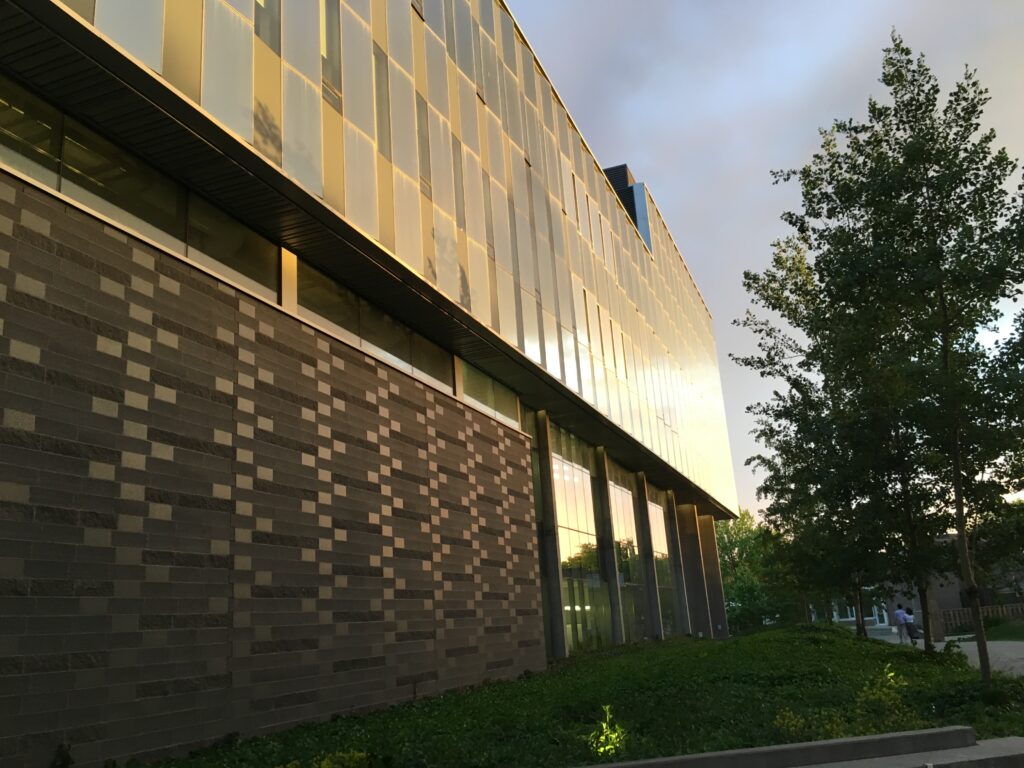


Hello! I’m Christopher Chamberland, a quantum computing expert and AI startup innovator. With a strong academic background from the Institute for Quantum Computing, I’ve led key design efforts for IBM’s quantum processors and helped chart AWS’s path to quantum computing. Beyond tech, I’m a passionate traveler and hiker, keen on exploring the world’s diverse landscapes. Join me as we delve into the intriguing crossroads of technology and exploration, where innovation meets adventure.
July 30 2023
I’ve always found myself drawn into the intricate mysteries of the universe, captivated by the elusive quest for a theory that marries Einstein’s theory of general relativity with quantum field theory. A theory that not only exists on paper but aligns with experimental reality. String theory, despite its tantalizing promise, remains unconfirmed by experiment. The tantalizing quest for such a unifying framework was the driving force early in my academic journey.
During my masters degree at McGill, I delved into the powerful language of Feynman diagrams, a tool that elegantly captures the dynamics of vast physical systems operating in the quantum realm. The power of these diagrams particularly shines in the realm of condensed matter physics, especially when dealing with large systems out of equilibrium. On the hunt for a compelling PhD topic, I found myself drawn to the research of a professor at the University of British Columbia (UBC), nestled in the scenic beauty of Vancouver, British Columbia. Part of his work revolved around leveraging Feynman diagram techniques to analytically compute properties of ultra-cold Bose-Einstein condensates–a fascinating intersection of quantum mechanics, statistical mechanics, and thermodynamics. Intrigued by this research opportunity, I reach out to him and eventually embarked on my PhD journey under his guidance in July 2014.

Securing an academic position as a theoretical physicist is notoriously challenging due to the scarce availability of openings. Moreover, I noticed a pattern of talented, diligent PhD students transitioning into entirely different fields after graduation, often driven by the lack of opportunities. My research was progressing well, and I was making significant contributions to my group. But the stark reality was dawning on me: if I wanted a diverse array of opportunities in line with my expertise post-graduation, I likely needed to pivot. I became convinced that I needed to immerse myself in a rapidly evolving field, one that would capitalize on my skills and interests. The idea of computer science began to gleam attractively. I had seen friends finding rewarding positions in this field post-graduation, and my own experience with programming and the immediate gratification it provided through quickly testable ideas was enticing.
And so, I decided to make a leap. I informed my advisor that I was leaving the UBC PhD program to redirect my focus towards computer science. At that point, I hadn’t applied to other universities or made any contact – I simply felt a compelling urge for this transition, trusting that I’d navigate the details along the way. My decision startled my advisor, prompting him to request me to consider it for another week before finalizing. Many friends and family members dubbed me as crazy for leaving a PhD program, particularly considering my promising progress. But a week later, I was even more certain of my decision. I was invigorated by the prospect of embarking on a new journey, a journey that promised diverse professional opportunities. This excitement was so overwhelming that, on my final day, I couldn’t sleep. I embarked on a pre-dawn drive back to Ottawa at 3:00am, navigating the 2800-mile journey that typically takes 5-6 days.

Back in Ottawa, I knew I had to choose my next PhD topic wisely, giving myself enough time to make an informed decision. To enhance my understanding of coding and CS theory, I enrolled in undergraduate computer science courses at my alma matter, the University of Ottawa. During a class on complexity theory, the discussion veered towards an algorithm that a classical computer could never solve efficiently. But the professor dropped a tantalizing hint: the efficiency of a quantum computer in solving this problem remained unexplored. A light bulb flickered in my mind. A confluence of quantum mechanics and computer science seemed like a perfect fit, given my expertise and interests. Suddenly, I remembered a past recommendation to apply at the Institute for Quantum Computing (IQC) which is part of the University of Waterloo. On that icy January day, when rain had transformed the roads into glacial paths, I dashed home at the end of the class. Checking IQC’s website, I found the winter term applications still open, and without wasting a moment, I submitted my application.
The University of Waterloo had a unique requirement for its PhD program: securing an agreement with a supervisor before official acceptance by the university. This set me on a new quest to find suitable advisors. Among several potential candidates, the name of Raymond Laflamme stood out. As the then-director of IQC, a former student of Stephen Hawking, and one of the pioneers of quantum error correction, his credentials were awe-inspiring. However, considering the competition, I dismissed the idea of being accepted into his group and reached out to other potential advisors. Weeks passed without a response, and a sense of desperation began creeping in. I knew I was on the right path and needed to secure a supervisor to continue my journey. In a last-ditch effort, I decided to reach out to Ray himself, even drafting the email in French! To my astonishment, he responded on the same day, inviting me for a Skype call to discuss my fit and asking for my CV.
The next day, the Skype call with Ray brought with it a set of challenges. Ray expressed his hesitations about accepting me as a graduate student due to my previous departure from, the UBC PhD program. I reassured him of my determination, emphasizing my firm conviction and readiness to dedicate myself to successfully completing my PhD. My enthusiasm didn’t seem to entirely convince him, but Ray extended an invitation for me to visit IQC and his group in a week’s time. A surge of excitement washed over me – I had a chance, a real chance, and I eagerly accepted the invitation.

On the day of my visit, I found myself face-to-face with Ray at the crack of dawn. He informed me of an imminent group meeting where he expected me to present my masters thesis. The twist? I hadn’t glanced at my thesis for over six months, and the intricate details were now fuzzy in memory. To compound my predicament, I had left my laptop in Ottawa, leaving me at the mercy of my fading memory. However, I remembered that I had uploaded my thesis to arXiv (despite my McGill advisors’ reservations at the time), providing me with a lifeline. I managed to download a PDF copy and review my over-100-page long thesis in the hour before the meeting. As I skimmed through my old work, most of the details clicked back into place, enabling me to cobble together a presentation.
After my presentation, I was back in Ray’s office for another discussion. Echoing our Skype interview, Ray again raised his concerns about my previous withdrawal form the UBC PhD program, expressing his apprehension about my commitment. A the end of our conversation, he promised to deliver his final decision in exactly a week. That evening, a dinner with his other students was on the agenda. While they seemed to be thoroughly enjoying themselves, a knot of anxiety tightened in my stomach. Ray’s lingering uncertainty about my candidacy loomed over me, and I couldn’t help but compare my situation to another student who had been offered a position immediately after her meeting with Ray. When I returned to Ottawa the following day, the wait for Ray’s verdict felt like one of the longest weeks of my life. On the Friday of that gruelling week, an email from Ray landed in my inbox. He was offering me a PhD position in his group, where I would delve into quantum error correction. The rest, as they say, is history…

Wonderful story – I can imagine your situation – and Ray is truly a wonderful person!!